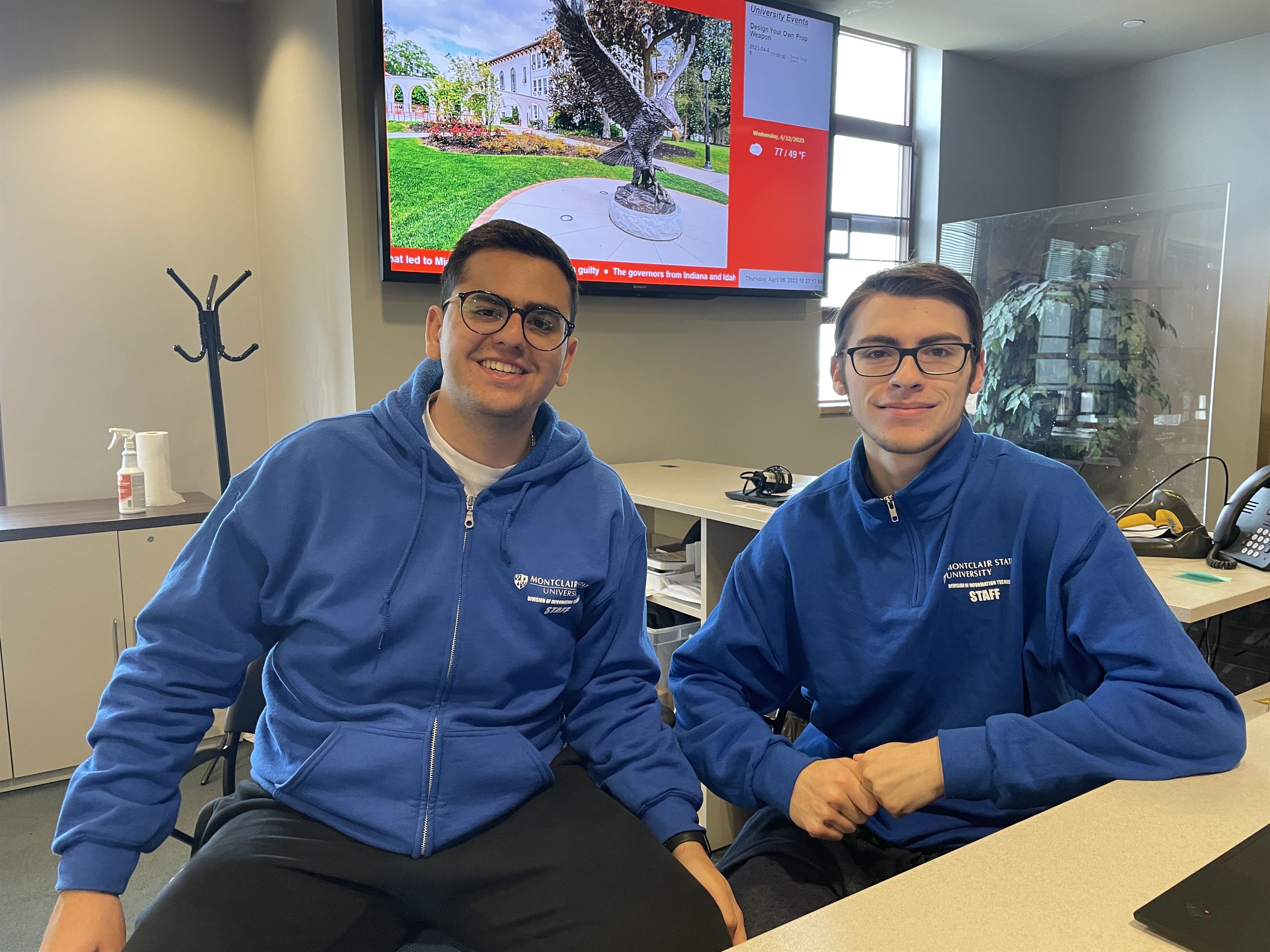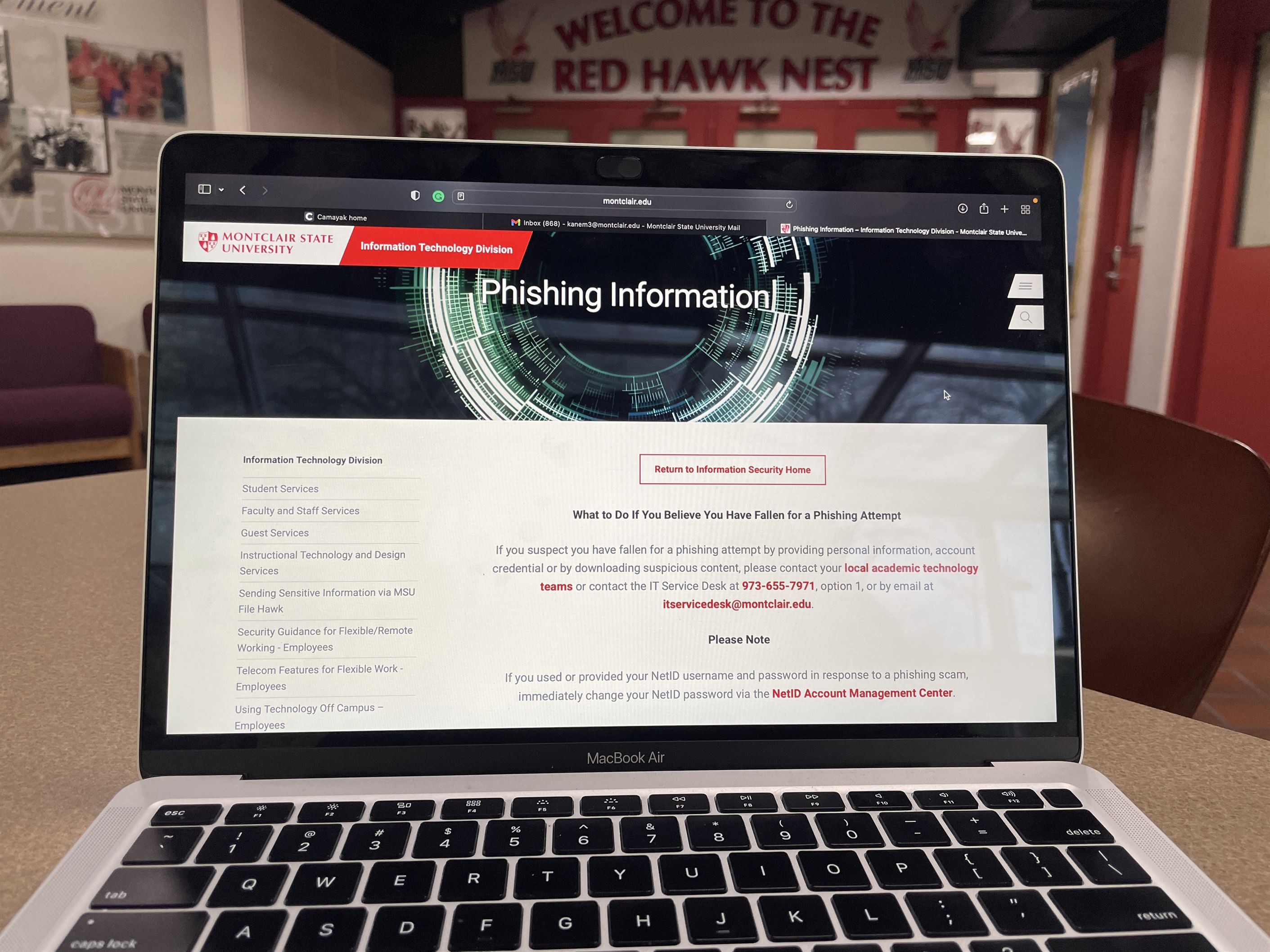Recently, there have been numerous reports of phishing scam emails being sent out to Montclair State University students and professors.
Though some may be able to quickly recognize and report the email, others may believe that it is real.
Kieran Barrett, chief of Montclair State’s police department, shared his thoughts.
“Unfortunately, scams such as the one described are fairly common at colleges and universities,” Barrett said.
Though an intriguing email can contain information that would make someone react by providing personal information, it may not be the best idea.
“It is essential we understand that offers that are too good to be true are almost every time a scam,” Barrett said. “On occasion, a [Montclair State] community member may respond to an offer of a job or solicitation for concert tickets (Taylor Swift tickets seem to be a popular national scam) or a romantic proposition on social media.”
Patrick Mills, a staff member of the Information Technology department at Montclair State, explained how these issues are being monitored.
“We do keep an eye out on [phishing emails] anytime that there’s like large-scale emails and everything,” Mills said. “It is on our radar.”

Information Technology department staff members Ramzi Far (left) and Patrick Mills (right).
Meagan Kane | The Montclarion
Naomi Ardon, a freshman public health major, shared the precautions she would take if she ever received such an email.
“Well, I would verify if it is actually a scam email,” Ardon said. “[If it was someone pretending to be a professor] I would check Canvas to see if the email is the same.”

Naomi Ardon, a freshman public health major, shares what she would do if she received a suspicious email.
Meagan Kane | The Montclarion
Barrett advised those of the Montclair State community to not share anything with potential scammers.
“Do not give personal information, do not transfer money, do not reply and do not meet any person based off of such emails or contact on social media,” Barrett said.
But, what if someone does fall for it? Mills broke down the process.
“If it’s relating to their [Montclair State] account, [the IT department staff] can go through the process of helping reset that password [and] helping make sure that whoever sent the phishing email can’t continue to access anything,” Mills said. “If there’s been payment or personal information sent, that does go to the hands of [the University Police Department], they take care of a lot of that.”
Sarah Bramley, a sophomore psychology major, almost fell for a scam email.
“The email [I received] was for an interview for an internship,” Bramley said.

Sarah Bramley almost fell for a scam email.
Meagan Kane | The Montclarion
Hearing about an opportunity for an internship is something students can fall for, and wanting to make a good impression may alter the thought of checking to see if the email is legit.
“I jumped on it as soon as possible and I wanted to get it [the internship] and give a good impression,” Bramley said. “This person started asking me for my home address. They were asking me really weird and personal questions, that’s how I thought it was a little weird.”
After a thorough investigation, Bramley found out that it was indeed a scam.
“[The email] got sent directly to my school email and I thought it was sent from the school,” Bramley said. “It asked me to give your first and last name, [and] phone number, so I gave my phone number, but when they asked for my home address I was like that’s a little weird. They texted me asking if it was me and I blocked the number.”
The best advice to those who may receive a suspicious email would be to have an awareness of potential scams.
Ramzi Far, an Information Technology department staff member alongside Mills, shared the best way to prevent further scams.
“I think that we are working on just reacting fast to it,” Far said. “There isn’t anything anyone can do about it, it’s just telling everyone to be aware of these emails.”



